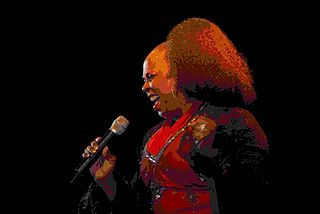A Quote by Betty Wright
'Pain' is more indicative of what I like to do. I'm lyric-conscious. I like to tell stories, give advice. Instead of writing a 'Dear Abby' column, I do it on records.
Related Quotes
We can tell people abstract rules of thumb which we have derived from prior experiences, but it is very difficult for other people to learn from these. We have difficulty remembering such abstractions, but we can more easily remember a good story. Stories give life to past experience. Stories make the events in memory memorable to others and to ourselves. This is one of the reasons why people like to tell stories.
Once I was in a cafe in Portland and the woman at the next table and I began chatting and in the course of our conversation she strongly recommend I visit this web site called 'The Rumpus' so I could read this advice column called 'Dear Sugar.' It was so painful not to tell her that in fact I was Sugar, but I didn't.
The thing that bothers me is that it seems like all the sensitive stuff I write just goes unnoticed . . . the media doesn't get who I am at all. Or maybe they just can't accept it. It doesn't fit into those negative stories they like to write. I'm the kind of guy who is moved by a song like Don McLean's "Vincent," that one about Van Gogh. The lyric on that song is so touching. That's how I want to make my songs feel. Take "Dear Mama" - I aimed that one straight for my homies' heartstrings.
Once the pain-body has taken you over, you want more pain. You become a victim or a perpetrator. You want to inflict pain, or you want to suffer pain, or both. There isn't really much difference between the two. You are not conscious of this, of course, and will vehemently claim that you do not want pain. But look closely and you will find that your thinking and behavior are designed to keep the pain going, for yourself and others. If you were truly conscious of it, the pattern would dissolve, for to want more pain is insanity, and nobody is consciously insane.
I don't really love to perform in music. Some people like it more, but it's not my thing so much, but just the writing, when you get the lyric, and the lyric just goes just the right way, or you find the right bridge that takes you to the solo, and those moments are tremendous, and it's difficult to portray.
Every time we give a musician the advice to give away the music and sell the T-shirt, we're saying, "Don't make your living in this more elevated way. Instead, reverse this social progress, and choose a more physical way to make a living." We're sending them to peasanthood, very much like the Maoists have.
Every time we give a musician the advice to give away the music and sell the T-shirt, we're saying, 'Don't make your living in this more elevated way. Instead, reverse this social progress, and choose a more physical way to make a living.' We're sending them to peasanthood, very much like the Maoists have.


































